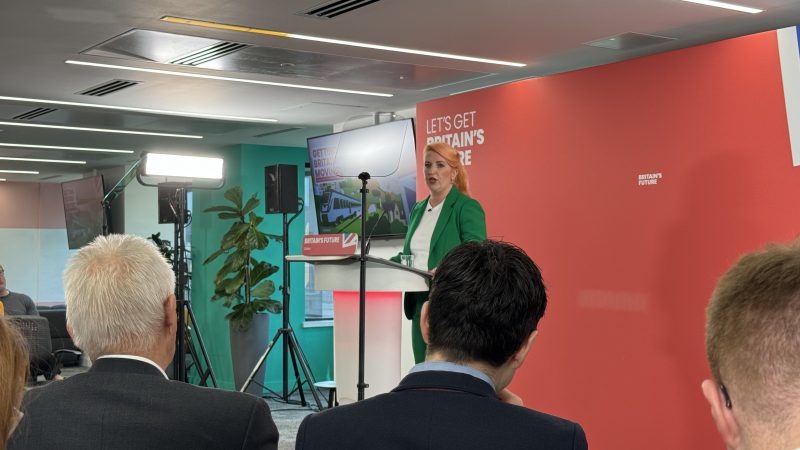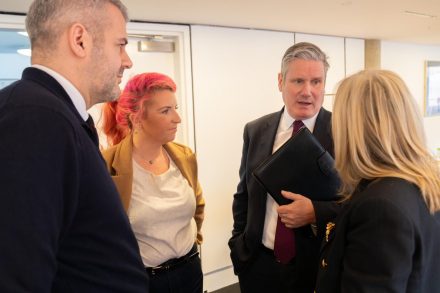Revealed: Claims of bullying, misogyny and harassment in Young Fabians
23rd April, 2024, LABOUR LIST

The Fabian Society’s chair has said it is “deeply sorry” after its own report said a “culture of misogyny and marginalisation”, abuses of power and sexual harassment had developed within the Young Fabians, with some current and former members calling it “toxic”.
A leaked report seen by LabourList reveals the findings of an investigation for the Labour-affiliated think tank into claims of “unacceptable behaviours and troubling practices”, convened in November last year.
It highlights “troubling reports of unchecked misconduct: of bullying, of sexual harassment, of poorly understood safeguarding requirements, of marginalisation and abuses of power, occurring in a climate of clique-ism, sexism and opaqueness”.
The Fabian Society recently re-launched its youth branch, and has committed to implementing changes on the basis of the review panel’s findings “in full” and shared them internally, though the report has not been published.
‘Culture of misogyny’
The report, which saw several committee members and one independent contributor speak to current and former members of the Young Fabians, said that while many praised the organisation as “helpful” and “welcoming”, issues “repeatedly” raised included a “culture of misogyny and marginalisation” within the organisation and claims power is “regularly misused”.
Some said the Young Fabians had been dominated by white, male university graduates. One said some men had shown “toxic and misogynistic behaviours”.
According to the report, the “culture of misogyny” within the organisation existed on a ‘spectrum’ from being overlooked to salaciousness and through to sexual harassment, though members noted misogyny was part of politics and society more widely.
The panel heard reports of incidents and behaviours of sexual harassment, which included physical contact and even sexual assault.
The authors said there were “profound safeguarding concerns” over having members as old as 30 socialising with children under the age of 18.
Current or former members also reported a lack of trust in and clarity around the complaints procedure, with some fearful about making a complaint about such behaviour.
One member is quoted in the report as saying: “I didn’t know that the person who abused me would know I made a complaint against them.”
‘Race and class-based inequality’
The panel also said there was a “poor” culture, described by some as “toxic”, and a lack of accountability throughout the organisation, “from not completing high quality work in a timely fashion, through to unchecked misconduct”.
Some members told the panel they had experienced and observed race and class-based inequality, with one member reporting that the idea of creating a Black and Minority Ethnic group within Young Fabians was met with “laughing dismissal”.
Other claims by current or former members included “many examples” of “self-aggrandising” behaviour, such as taking credit for others’ work, and a “climate of clique-ism”.
Recommendations for ‘cultural change’
The report listed six areas for action on “cultural change”, with a number of recommendations, calling on the Fabian Society to do more as the “parent organisation” to foster an environment that “nourishes rather than depletes or harms”.
The recommendations also called for a shake-up of the Young Fabians, with multiple co-chairs with at least one woman, a three-year maximum term limit for members of the group’s executive committee and restrictions on the age range for membership.
The executive committee will also require at least six of its 12 members to be women and “should be populated in significant part by those less rooted in experiences of power”, including disabled people, people from working class backgrounds, LGBTQ+ people and “racially minoritised” people.
The report’s authors say problems identified should be “understood as environmentally driven or enabled, not only a matter of policy or procedures and certainly not a matter of a few ‘bad apples’”.
The investigation came after the Fabian Society suspended in-person activities and elections of Young Fabians last autumn following a complaint about several of its members, including “allegations of behaviours that breach the society’s code of conduct”.
Praise from members too
The report did find many current or former members “wanted to share their good experiences” as well.
Some called it “really helpful” in their learning and political journey, while others said it was “very welcoming” to them, and there was apparently relief among some respondents that positives were being noted as well as problems.
One said: “I met some incredible friends for life. I fervently believe the Young Fabians can be a force for good and promote active free thinking to develop the future of the left.”
Fabians ‘deeply sorry’ as new youth committee planned
Sara Hyde, chairwoman of the Fabian Society, said the organisation takes “all complaints extremely seriously” and took “swift action” to suspend the Young Fabians in order to commission the review.
She said: “The Fabian Society executive committee is deeply sorry that this Young Fabian culture developed and apologise to members affected.
“The recommendations the review panel made are wide-ranging, timely and have been developed with the participation of members past and present – including those who made complaints. They have been accepted by the Fabian Society and are now being implemented in full.
“Every part of the Fabian Society should be a place where people can thrive. We now look forward to working with the Young Fabians in close partnership to foster an atmosphere of open debate and development, where all members can participate fully, equally and safely.
“We are delighted that more than 60 people have applied to serve on a new Young Fabian executive which will relaunch the organisation and set it on a new path.”


















